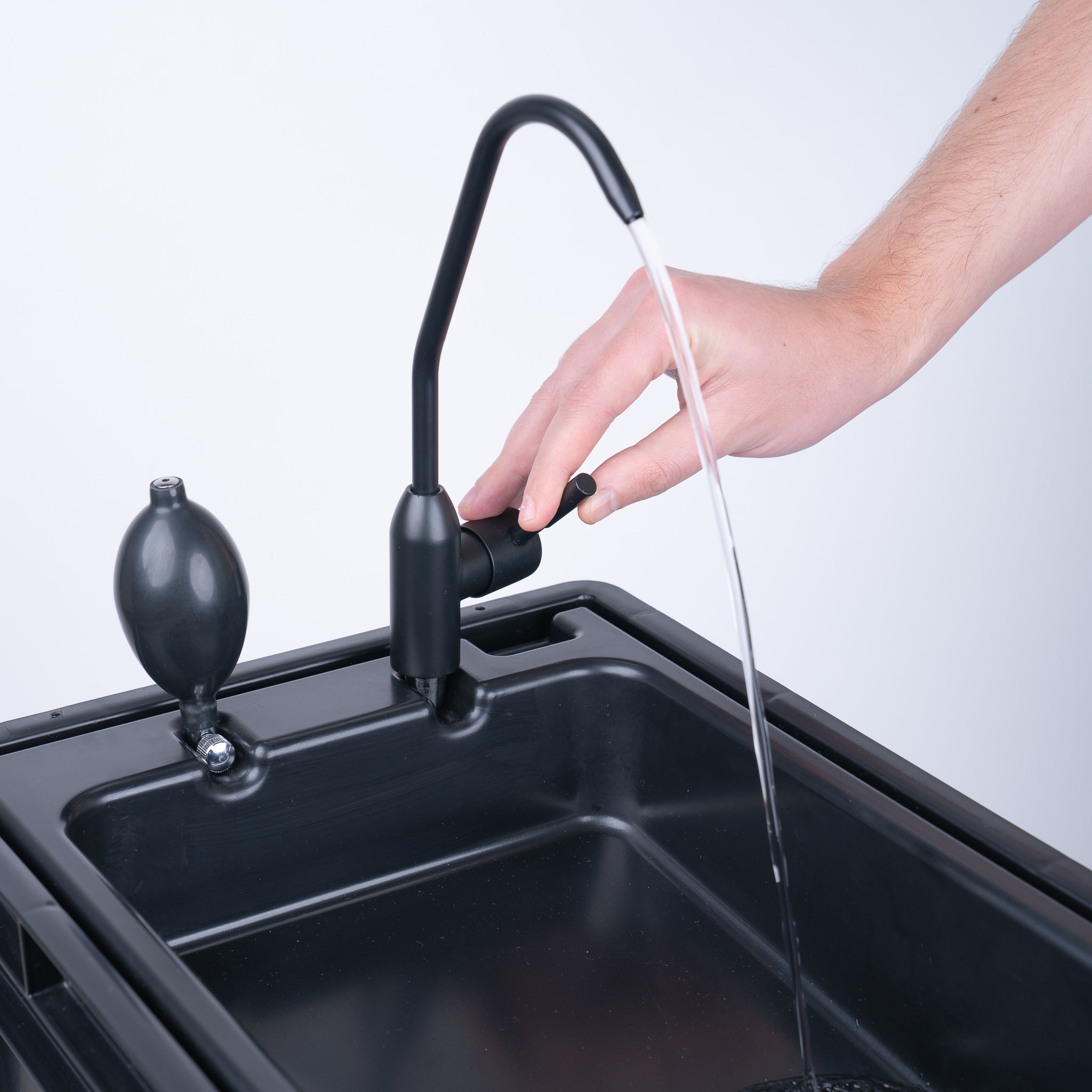Understanding the Temptation
In the hustle and bustle of daily cooking routines, the disposal of used cooking oil often becomes an afterthought. With a quick swipe of a paper towel or the flick of a wrist, the temptation to pour oil down the kitchen sink seems like the most convenient solution. After all, it’s liquid; it should just slide down the drain, right? This common misconception stems from a lack of awareness about the potential long-term consequences of such actions on our plumbing systems and the environment.
The Silent Menace Below
Pouring oil down the sink may seem harmless at first, but once it cools, the story changes drastically. Liquid oils solidify and congeal, turning into a thick, sticky mass that adheres to the inside of pipes. Over time, this residue accumulates, narrowing the pipe diameter and eventually causing blockages. These blockages, known as fatbergs, can grow to monstrous proportions, clogging not just household drains but also municipal sewer systems, leading to backups that flood homes with raw sewage and necessitate costly repairs.

Environmental Impact: From Kitchen to Catastrophe
The environmental implications of pouring oil down the sink extend far beyond the confines of our homes. When these fats, oils, and greases (FOGs) reach wastewater treatment facilities, they can overwhelm the system, reducing its efficiency in treating other pollutants. Untreated or partially treated sewage can then be discharged into waterways, harming aquatic life and ecosystems. Furthermore, fatbergs that manage to escape detection can break off and find their way into rivers and oceans, where they pose a threat to marine life through ingestion or entanglement.
Alternatives to Drain Disposal
Given the detrimental effects, it’s crucial to explore and adopt alternative methods for disposing of used cooking oil. One simple yet effective method is to let the oil cool and solidify in a heat-safe container before scraping it into the trash. For larger quantities, many municipalities offer oil recycling programs where used oil is collected and transformed into biofuels or other useful products, closing the loop on waste management. Restaurants and foodservice establishments often partner with rendering services that specialize in collecting and processing FOGs on a commercial scale.

The Role of Education and Awareness
Changing habits starts with education. Many homeowners are unaware of the hazards associated with pouring oil down the sink, highlighting the need for public awareness campaigns. Local governments, utilities, and environmental organizations can play a vital role in disseminating information through social media, community events, and educational materials distributed with utility bills. School programs can also teach children about responsible waste management practices, instilling lifelong habits that protect our infrastructure and environment.
Regulatory Measures and Enforcement
Recognizing the severity of the issue, some cities have implemented strict regulations and fines for improper disposal of FOGs. Inspections of commercial kitchens now include checks on grease traps, ensuring they are properly maintained to prevent oil from entering the sewer system. While residential enforcement is less common, raising awareness and encouraging voluntary compliance can be as effective as regulatory measures in mitigating the problem.

Long-Term Solutions: Innovations and Infrastructure Upgrades
Addressing the kitchen conundrum of oil disposal requires a multi-pronged approach that combines individual action with systemic improvements. Investments in advanced wastewater treatment technologies can enhance the removal of FOGs from sewage, reducing the burden on our natural water resources. Upgrades to aging sewer systems with materials resistant to FOG buildup and the installation of more efficient grease traps are also necessary steps. On the consumer front, the development of at-home oil solidifying agents or easy-to-use oil collection kits could simplify the disposal process, making it more appealing for households to adopt proper practices.

Culinary Consciousness: A Shift in Mindset
Ultimately, the decision to avoid pouring oil down the sink reflects a broader shift towards culinary consciousness – an awareness that our actions in the kitchen have ripple effects beyond mealtime. It’s about recognizing that each small act of responsible waste disposal contributes to a cleaner environment, more efficient infrastructure, and healthier communities. As we continue to cook and create in our kitchens, adopting sustainable habits around oil disposal is not just a choice, but a responsibility we owe to ourselves and future generations.
Community Engagement and Collaboration
Fostering a culture of environmental stewardship necessitates collaboration between various stakeholders, including local governments, businesses, educational institutions, and residents. Community outreach programs can play a pivotal role in disseminating information about the impacts of FOG disposal and promoting best practices. Workshops, online campaigns, and school programs can educate citizens on creative ways to recycle used cooking oil, such as converting it into biofuel or soap, thus adding value to what was once considered waste.
Incentive Programs and Reward Systems
To further encourage adherence to proper FOG disposal guidelines, municipalities could introduce incentive programs. These might include tax rebates for restaurants that implement and maintain high-efficiency grease management systems, or reward points for households participating in community oil recycling initiatives. Such positive reinforcement not only promotes responsible behavior but also fosters a sense of collective accomplishment and environmental ownership.

Monitoring and Data-Driven Approaches
Leveraging technology for real-time monitoring of FOG levels in sewers can enable proactive maintenance and prevention of blockages. Smart sensors placed within the sewage network can transmit data on FOG accumulation, allowing for targeted cleaning and intervention before issues escalate. This data-driven approach can optimize resource allocation and make enforcement more efficient, thereby reducing overall costs associated with FOG-related damages.
Circular Economy Solutions
Transitioning towards a circular economy model offers a transformative solution for FOG management. Instead of viewing used cooking oil as waste, it becomes a valuable resource in closed-loop systems. Establishing partnerships between foodservice providers, waste management companies, and bioenergy producers can create a seamless chain for collecting, processing, and repurposing FOG into renewable energy sources or other useful products. This not only alleviates environmental pressures but also stimulates economic growth in green industries.
Policy Integration and International Cooperation
The challenge of FOG disposal transcends local boundaries, necessitating national and even international cooperation. Harmonized policies and standards can facilitate knowledge sharing, technological advancements, and consistent implementation strategies across regions. International agreements and platforms can support research, funding, and capacity building for countries grappling with inadequate infrastructure or resources to manage FOG effectively.
In conclusion, the answer to the kitchen conundrum of whether you should pour oil down the sink is a resounding no. Through education, innovation, and a collective commitment to responsible waste management, we can turn this common mistake into a lesson in environmental stewardship, preserving the integrity of our homes, cities, and planet for years to come.
